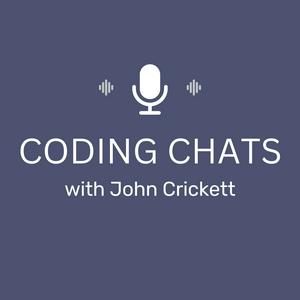Coding Chats episode 66 - Alex Garella discusses the current state of the Rust job market, highlighting its mixed nature amidst broader software development trends. He emphasizes the importance of specific skills and industry experience, particularly in emerging technologies like data infrastructure. The impact of AI tools on software development and hiring practices is explored, along with strategies for breaking into the Rust market, including open source contributions and leveraging LinkedIn effectively.
Chapters
00:00 The Current State of the Rust Job Market
03:15 Skills in Demand for Rust Developers
05:46 Emerging Domains for Rust Applications
08:44 Rust's Role in AI and Machine Learning
11:38 The Evolution of Interview Processes
14:30 Challenges in Hiring Rust Developers
17:28 Navigating the Job Market as a New Rust Developer
20:27 Leveraging LinkedIn for Job Opportunities
23:21 Final Tips for Aspiring Rust Developers
Alex's Links:
https://rustjobs.dev/
https://scalajobs.com/
John's Links:
John's LinkedIn: https://www.linkedin.com/in/johncrickett/
John’s YouTube: https://www.youtube.com/@johncrickett
John's Twitter: https://x.com/johncrickett
John's Bluesky: https://bsky.app/profile/johncrickett.bsky.social
Check out John's software engineering related newsletters: Coding Challenges: https://codingchallenges.substack.com/ which shares real-world project ideas that you can use to level up your coding skills.
Developing Skills: https://read.developingskills.fyi/ covering everything from system design to soft skills, helping them progress their career from junior to staff+ or for those that want onto a management track.
Takeaways
The Rust job market is currently mixed, with both opportunities and challenges.
Experience in specific industries is often more valuable than tool-specific knowledge.
Emerging technologies, especially in data infrastructure, are driving demand for Rust.
AI tools are changing the landscape of software development and hiring.
Hiring managers need to adapt their interview processes to account for AI usage.
Open source contributions can significantly enhance a developer's profile.
Tailoring CVs too specifically can raise red flags for recruiters.
Remote work options can broaden the talent pool for Rust developers.
Developers should not limit themselves to Rust when seeking jobs.
Persistence and passion for Rust can lead to job opportunities.


